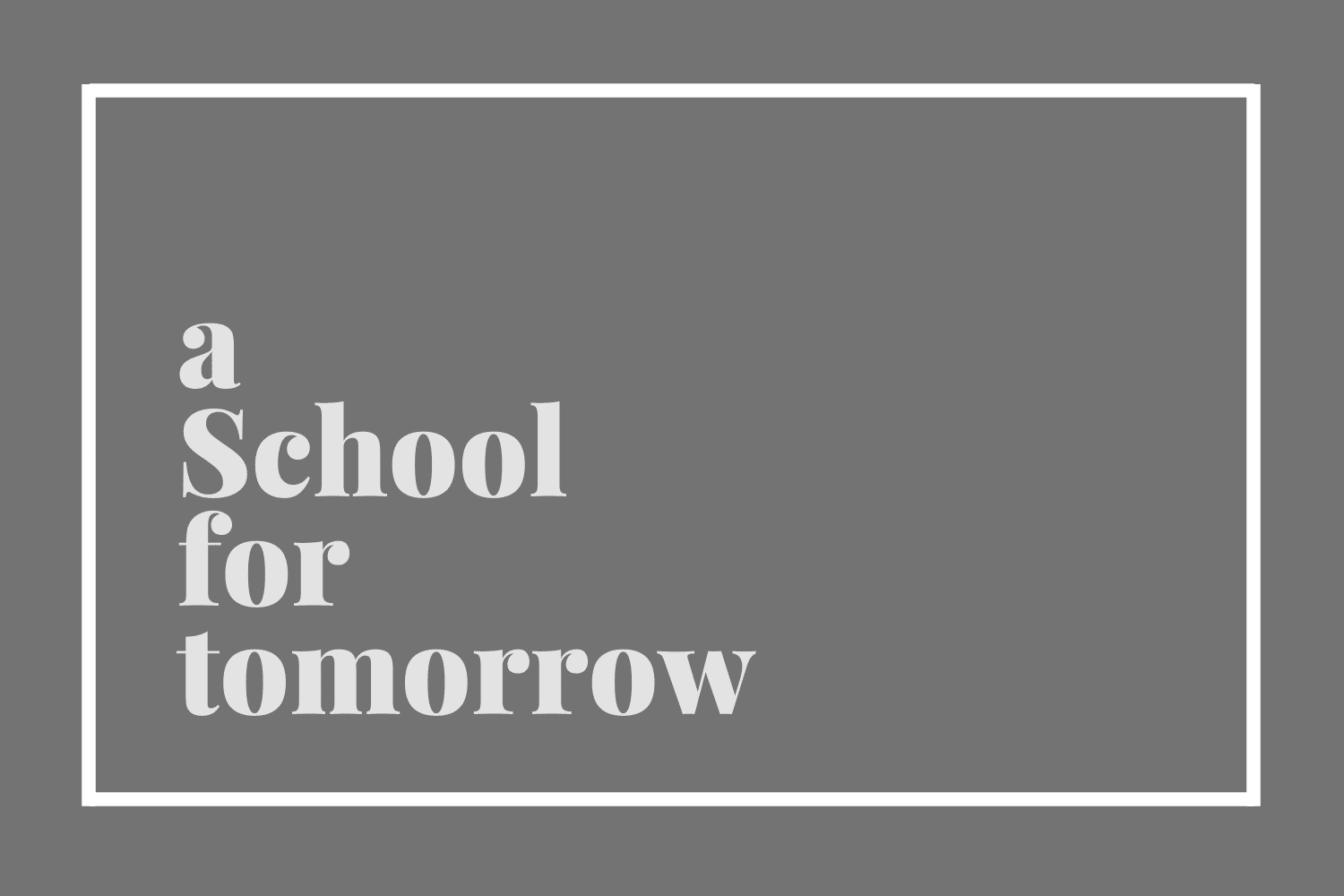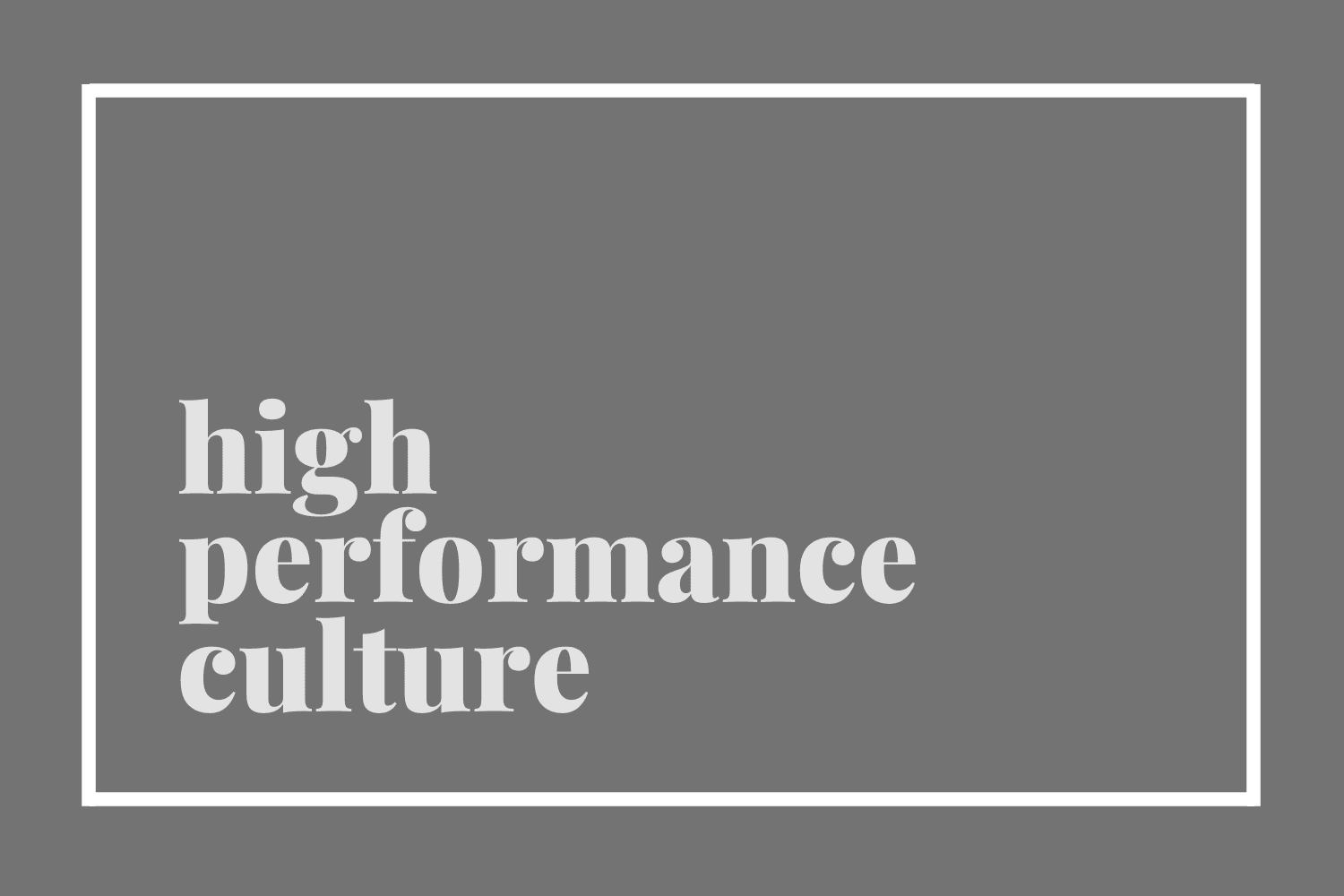
GAME CHANGERS
In a School for tomorrow. we want to motivate each other as evidence-based champions of high performance and systems that improve outcomes for all learners. We need to commit to our calling, bring together the compelling narrative, describe and measure our performance, and define the narrative and role community of inquiry and practice that will help everyone to work vocationally and find their calling by asking the question: whose am I?

THE PERFORMANCE OF A SCHOOL
A Game Changer who motivates as an evidence-based high-performance leader in a School for tomorrow. works with people to develop the organisational, professional and personal competencies to align their performance with the need of our societies for people to thrive in their world. What is high-performance in a school setting? What do families want for the education of their children? To what end should schools be conceived and designed? How well are schools fulfilling the expectations of society about the purpose of education?
Over recent years, the team at CIRCLE - The Centre for Innovation, Research, Creativity and Leadership in Education has engaged in wide-scale research in hundreds of schools with many thousands of stakeholder respondents on behalf of partner organisations and as part of our ongoing work with our client schools around the world. Our work with the Association of Boys’ School in New Zealand, in particular, draws us to the following conclusions about what people want from their schools:
- The language of the expectations of stakeholders is overwhelmingly expressed in terms of the growth of the whole person and the development of the character, competencies, and wellness that comprise this through providing a whole education. Very few specifically point to one field of achievement as the desirable goal.
- High approval is given to schools that routinely meet and exceed expectations of stakeholders for a strong experience of a whole education. In other words, when stakeholders believe that schools do a good job in educating their students, they like what they experience and are supportive of their schools.
- We are beginning to develop a clearer understanding of what this picture of an industry standard of high-performance culture looks like, how schools can move towards it if they are still developing their practice, and how they can achieve it by developing this culture.
- a School for tomorrow. demonstrates a shared vision and vocabulary for their preferred future, an agreed value proposition for what the school delivers, and change whose velocity, shape, and trajectory have all been designed and implemented to attenuate the demands and pressures of the school’s external and internal contexts. It delivers an excellent education for character that is founded on fit for purpose graduate outcomes and their key 21C qualities and competencies (character, communication, change readiness, creative and critical thinking, citizenship, and collaboration), and the expression of these in a curriculum that shapes its educational philosophies, programs and activities accordingly towards a preferred future in the years ahead.
- a School for tomorrow. becomes, therefore, an evidence-based community of inquiry and practice that is focused on improving outcomes for more learners by:
- Providing a whole education: The deliberate, targeted, and intentional centrality of character and competence in an excellent 21C education
- Meeting expectations for a whole education: The secret sauce of high-performance culture in driving the character of an excellent 21C school
- Achieving standards for whole education: Purpose and relationship in the character of a leader and the leader of character in excellent 21C schools
Integral to any evaluation of the leadership of high-performance culture within a school will be conscientious attendance to the factor that research tells us makes the greatest difference to the quality and consistency of student learning outcomes: staff professional learning within a high-performance culture. The learning journeys of individual teachers and other members of the community require a respect for the difficulties that confront individuals during the process of acquiring and maintaining a level of conscious competence that is characterised by self-efficacy and adaptive expertise.
This requires us to have in mind a clear picture of what the end product of our labour in the professional learning of our colleagues might be development might be. It is clear that the leadership of learning work must do more than facilitate the "doing" of professional learning and the promotion of collaboration among our colleagues to gather an evidence basis for what we do. It needs to have a shared an deeply ingrained commitment towards doing those things that will generate the shared learning that a community of inquiry and practice needs if it is to produce improved outcomes for more learners and if these outcomes are to be of the type that are genuinely relevant in producing the character and competency our graduates require to thrive in their world.
“The best way to not feel hopeless is to get up and do something. Don’t wait for good things to happen to you. If you go out and make some good things happen, you will fill the world with hope, you will fill yourself with hope.”
Barack Obama
HIGH PERFORMANCE LEADERSHIP IN SCHOOLS
It starts with people. As Dan Pink tells us that there are three components to engaging and motivating professionals when they have already reached a financially adequate threshold: mastery (a feeling of control over the content and competencies of your role), autonomy (a feeling that you are equipped, empowered, and enabled to make the key decisions that affect the nature and outcomes of your work), and purpose (a feeling that you are engaged in a noble pursuit that is contributing to a greater good). All of these must be in place in order to ensure high levels of staff performance. We need to understand how to do the positive things that help people to feel as if they have mastery, autonomy, and purpose. But we need more than just the ability to motivate. We also need to know at an organisational level, as Martyn Freeman tells us, how to capture the energy and imagination of people in our organisation; how to use real emotional strength to lead and move the organisation forward. To borrow again from Michael Fullan to whom we have referred elsewhere, if we focus on the work of the individual, technology and do it in a piecemeal fashion we won’t get anywhere. We need to build capacity, build teamwork, focus on pedagogy, and be systematic. If we look at the essential conditions, it's clear we must focus people on their intrinsic motivation and why they do what they do. We need to engage students and teachers in continuous improvement. We need to avoid fixed mindsets as well as sitting down to consolidate and congratulate ourselves. We need to keep moving forward with teamwork and all students and all teachers need to take part in it. A school community is for everybody and we need to choose our missions, roles, and to work in alignment with it. Sequence, alignment, and cohesion are essential in this process. It needs to be transparent and it needs to be supported and monitored by the centre.
Our initial leadership purpose as evidence-based high-performance leaders is to build performance and the systems and operations that bring people together to improve student outcomes. We need to identify and share a “secret sauce” of aspirations, a sense of kinship, and pathways to success, applied within a high performance culture of inspiration, challenge, and support that fosters both the pursuit of excellence by young people of character, and the sense of belonging to and engagement in school that keeps them in their groove and holds them to the educational purpose. We need to appreciate the importance of using evidence to focus people on developing the right solutions for building a culture of high performance in leadership and learning. We should work towards nurturing effective learning relationships and strive to support an appropriately resourced community of inquiry and practice. We also need to focus people on the right thing and get the systems and operations in place to help them do it well. As evidence-based high performance leaders, we need to be people of good character who have a coherent set of values that guide us to do the right thing. We also need to think carefully about practical and workable answers to challenging questions, and design and generate effective solutions accordingly. Our leadership competencies are about enriching and focusing. We believe that leading through teams enhances the school by empowering people. This is characterised by our conscious acknowledgement of the voice and agency of individuals and groups within the school’s whole community of inquiry and practice. We also believe that leading through expectation concentrates the school on solutions for the future derived from the best possible thinking. This is characterised by enacting strategic intent, paying attention to detail in implementation, and emphasising achievement of desired outcomes.
This draws on our leadership capabilities of building the right team culture, making decisions and solving problems. We strive to assiduously demonstrate team values and cultivate the right team attitude, creating a culture that supports the desired ethos and enables the preferred strategy, while enhancing the dignity, worth, and contribution of every team member. In doing so, we consult team members appropriately in making decisions, equipping themselves with a range of appropriate evidence-based decision-making models that help them to focus on the right information needed to make timely decisions that meet the desired object and successfully manage the stress and risk associated with the decision. Typically, high-performance leadership in schools which are on the journey towards becoming a School for tomorrow. involves:
- The learning work: Identifying a rationale, model and trajectory for the high-performance learning culture that drives the work of a great school
- The imperative for student competency: Building student voice, agency and fluency in 21C character and competency through designing and creating the learning culture, formative impacts, and guiding narratives that foster growth in development and lead to the attainment of desired graduate educational outcomes
- The imperative for staff competency: Identifying a model for adult learning and change that multiplies the transformative moments and ongoing professional learning journeys that lead to staff growth in corresponding 21C learning, teaching and leadership character and competencies
- The role of a community of inquiry and practice: Building the adaptive expertise, self-efficacy, and aligned purpose of staff in a community of inquiry and practice dedicated to improved outcomes for learners in 21C character and competency
- The impact of strategy and systems: Determining and operationalising a strategic educational intent for a community of inquiry and practice through designing, planning, and implementing whole-school high-performance staff professional learning and performance development programs and support systems
- The habits of learners: Promoting a tendency towards curiosity and inquiry, a passion for improvement through change, and a commitment to the research activity (expressed through priorities, pilots, projects, and personalised plans) that creates the evolving evidence basis for high-performance learning culture
- The path to competency through relationship: Strengthening adaptive expertise and self-efficacy in 21C learning, teaching, and leadership character and competency through the pedagogies of character apprenticeship
- The measure of great educators: Evaluating the journey towards high performance learning culture by measuring growth in individual development, program delivery, and organisational maturity
This progress is never fixed. Even the very best schools are never perfect in striving for their goals. We all want to conserve that which is enduringly valuable while seeking the best that innovation can offer. How this balance is achieved is an ongoing quest.

A SCHOOL FOR TOMORROW
A School for tomorrow is equipped with the education, culture, leadership and performance to develop the character, competencies and wellness that empower students on The Pathway To Excellence to acquire the adaptive expertise and self-efficacy required for them to thrive in their world. Educators in this community of inquiry and practice are informed by The Way and led by Game Changers...

HIGH PERFORMANCE CULTURE
Schools that are seriously committed to become great schools of character need to do more than simply replicate solid performance in the basic foundations of schooling. They must identify the “secret sauce” of high-performance culture, foster the leadership to perpetuate it, re- engineer structures and systems so that it becomes embedded, and direct the efforts of its faculty into learning and teaching that fundamentally addresses the requirements of 21C character and competency in a deliberate, targeted and intentional fashion...

AN EDUCATION TO LEARN
In a School for tomorrow we want to influence a research-driven community of inquiry and practice to find a way to educate students to learn the character, competency and wellness required to thrive in our world. This community needs to cultivate a growth mindset, empower learners, and personalise learning so that all can learn the self-awareness of knowing themselves through asking: who am I?...

STANDARDS FOR HIGH PERFORMANCE CULTURE IN SCHOOLS
Leading schools towards becoming schools of character must involve aspirational rather than restrictive or compliance-driven standards that meet stakeholder expectations for a whole education. We must understand school culture and climate, leading an educational program, teacher effectiveness, the student educational experience, strategic and operational alignment, and teacher professionalism...

THE CULTURE TO LIVE
In a School for tomorrow we want to inspire a growth-minded community of inquiry and practice to build a disposition for change, align decisions standards, and share in a language for learning that contribute to the progress and wellness of all. This enables all to grow to become the people they need to be and to live well in relationships built by earning their places through asking the question: where do I fit in?...

ORGANISATIONAL MATURITY AND CULTURAL COMPETENCY IN A HIGH-PERFORMANCE SCHOOL
Schools and the teachers in them are strategically and operationally engaged in a continuous process of supporting the learning of children while they grow into their adulthood. This necessarily and naturally involves helping them to master the processes of change that are normal (and sometimes abnormal) in their lives...

THE STRATEGY TO LEAD
Leading is about becoming a servant who goes on a journey from me to you to us through asking the question: how can I best serve others? Leading in a school community begins with understanding the mission and its tasks, developing a shared vision for how strategic learning capacity might be increased, and answering the questions that will help the school make the right choices about its future...

CULTURAL LEADERSHIP AT A STRATEGIC LEVEL
In creating the conditions by which we might help the hearts and heads of our staff to be inclined towards the important work of continually improving outcomes for students, we need to help them to improve their own competencies along the way. The inspiration for change will be modelled at first, but it needs to become normalised within the individual learning journey of each teacher along the way through their explicit understanding of their purpose, philosophy and practice, as well as their plan for ongoing growth and development...

THE PERFORMANCE OF OUR WORK
In a School for tomorrow we want to motivate each other as evidence-based champions of high performance and systems that improve outcomes for all learners. We need to commit to our calling, bring together the compelling narrative, describe and measure our performance, and define the narrative and role community of inquiry and practice that will help everyone to work vocationally and find their calling by asking the question: whose am I?